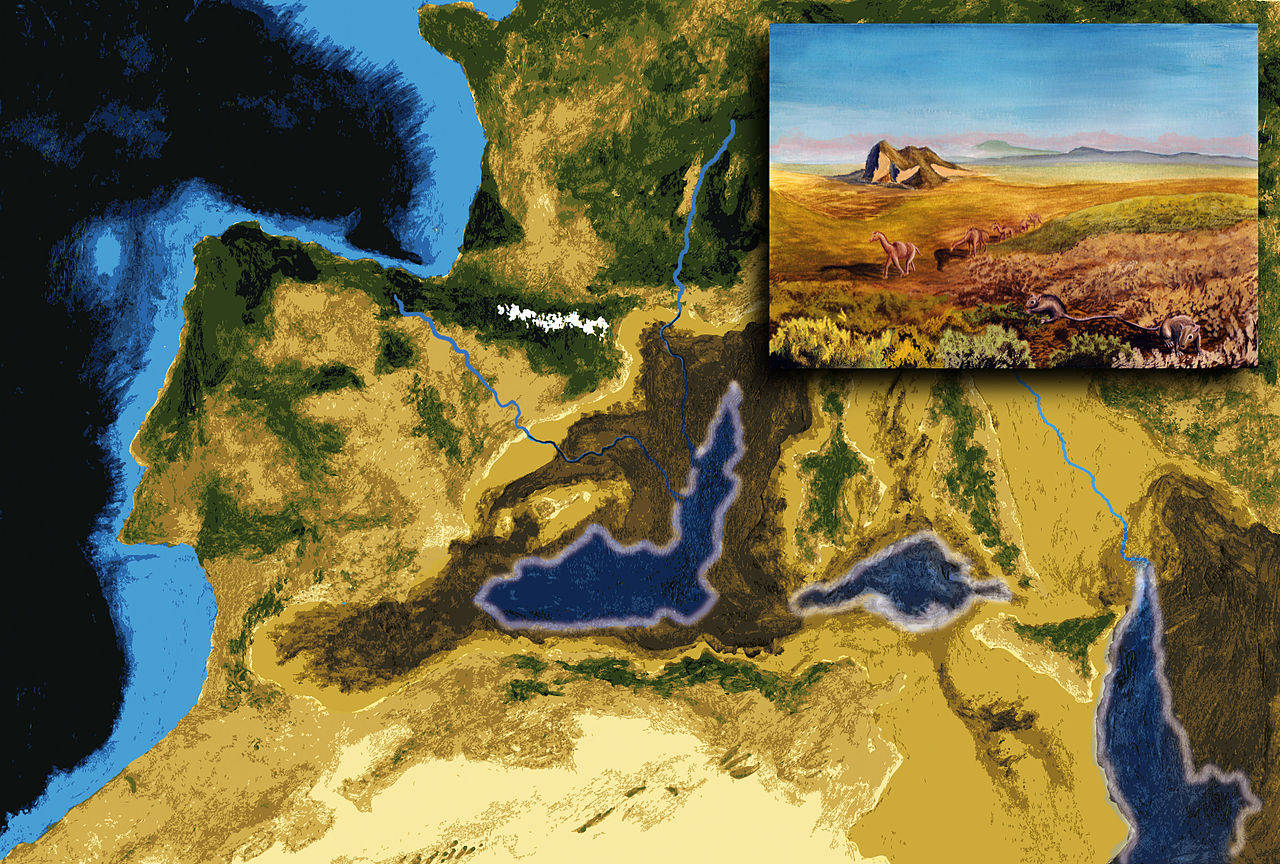Once upon a time, the Mediterranean Sea turned into a vast salty basin for around half a million years. Hints of this geological upset can still be seen today – and there’s a chance a similar cataclysm might happen again in the distant future.
The event is known as the Messinian salinity crisis. So the theory goes, an upset in sea levels made it impossible for the Atlantic Ocean to flow into the Mediterranean Sea, plummeting it into a period of near-complete desiccation between 5.97 to 5.33 million years ago.
Many scientists – although not all – believe this cataclysmic event occurred due to the discovery of a 1.5-kilometer (0.9 mile) thick layer of salt along the seafloor of the Mediterranean, first identified in the early 1970s. However, not everyone agrees on the nature or the extent of the event.
One of the prime causes of the Messinian salinity crisis was likely to be the movement of tectonic plates. The African and Eurasian plates had been slowly crashing together for thousands of years. Eventually, the slow-motion collision caused the closure of the Strait of Gibraltar, the narrow body of water that connects the Atlantic Ocean to the Mediterranean Sea.
Another likely factor was falling sea levels, which made it harder for ocean water to enter through the Strait of Gibraltar. A 2015 study argued that the decline in global sea levels around this time may have had something to do with the expansion of the Antarctic ice sheet, effectively holding more of the world’s water around the South Pole and away from the North Atlantic.

Artistic interpretation of the Mediterranean geography during the Messinian salinity crisis.
The Mediterranean Sea was very vulnerable to these changes. Because it’s found in a relatively warm and dry pocket of the planet, the seawater evaporates at a very fast pace. With no fresh influx of waters from the Atlantic, the enclosed sea dried up within just a few thousand years, leaving behind a salt-caked basin that connected parts of North Africa with southern Europe.
In theory, it would have been possible to wander from present-day Morroco to Spain or Libya to Italy. Indeed, some animals did make this migration. Some theorize that the Spanish islands of Mallorca, Menorca, Ibiza, and Formentera were colonized by several land animals during this bout of desiccation.
Simultaneously, the crisis caused the decimation of marine biodiversity in the Mediterranean, killing off up to 89 percent of endemic marine species (some 11 percent of species seemingly survived, although it’s a mystery how).
After a long period of separation, tectonic activity eventually caused the Strait of Gibraltar to reopen, allowing a gigantic flood of Atlantic water to rush back into the Mediterranean Sea. Known as the Zanclean megaflood, it’s said to have been one of the most extreme floods to ever grace planet Earth.
Even today, the Mediterranean Sea remains saltier than the rest of the Atlantic Ocean partly due to the same geographic and climatic conditions that contributed to the Messinian salinity crisis. Although it’s no longer cut off from the Atlantic, the Mediterranean still has limited water exchange through the narrow Strait of Gibraltar and experiences a lot of evaporation, leading to increased salinity.
It’s possible, albeit by no means certain, that a similar event could occur again in the future. Earth’s tectonic plates are in a constant state of movement and the Mediterranean region is especially complex. Some scientists have described it as “a geological mess”, riddled with unusual fault zones and overlapping plate fragments.
As the African plate continues to drive into the Eurasian plate, the two landmasses could meet to form the mega-continent of Eurafrica, wiping the Mediterranean Sea from the map once again.
Source Link: Messinian Salinity Crisis: When The Mediterranean Sea Dried Into A Salty Desert